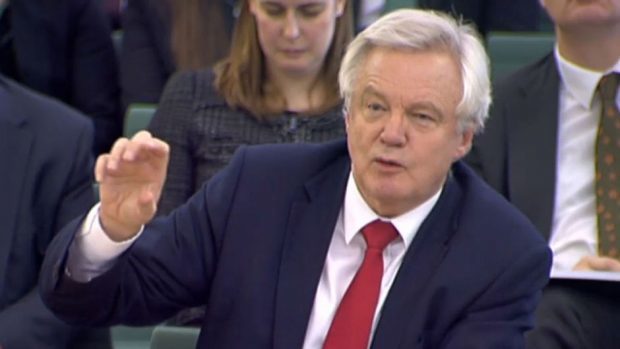Brexit Secretary David Davis has dismissed calls for the UK Government to publish its formal plan for leaving the EU before MPs vote on whether official talks can begin.
He came under pressure yesterday to commit to providing the promised white paper while the Article 50 bill is being considered in the Commons.
The UK Government was forced into tabling legislation after the Supreme Court ruled Theresa May cannot trigger Brexit without the approval of the UK Parliament.
It is expected to be rushed through both Houses within weeks to meet the government’s deadline for starting withdrawal by the end of March.
Mr Davis was also warned the white paper must include more detail than set out in the prime minister’s speech outlining her intention to take the UK out of the European single market and customs union in its current form.
He repeatedly said the plan would be published “as quickly as possible” and insisted it would not include information that could undermine the UK’s negotiating position.
Speaking in the Commons, SNP Europe spokesman Stephen Gethins asked: “Do you think we should be able to see the white paper before we consider legislation?
“Will you commit to publishing the white paper before the committee stage (of the Article 50 bill)?”
Mr Davis said the bill was merely putting in place the beginning of the procedure that the British people voted for last year, adding there would be further legislation and many more opportunities for scrutiny later on.
Shadow Brexit minister Jenny Chapman agreed parliament needed to see the bill before committee stage.
Mr Davis replied: “How do you deal with an opposition that won’t take yes for an answer, really?
“I’ve said we will produce it as expeditiously as possible, as quickly as possible. What can you do faster than that?”
Ms Chapman added: “When we get it, will it be a cut and paste of the prime minister’s speech or instead will we have assessments of the financial impact on this country of different options?”
Mr Davis praised Mrs May’s speech as “one of the clearest expositions in national policy” he had heard for “many, many years”, adding it had been well received around Europe.
